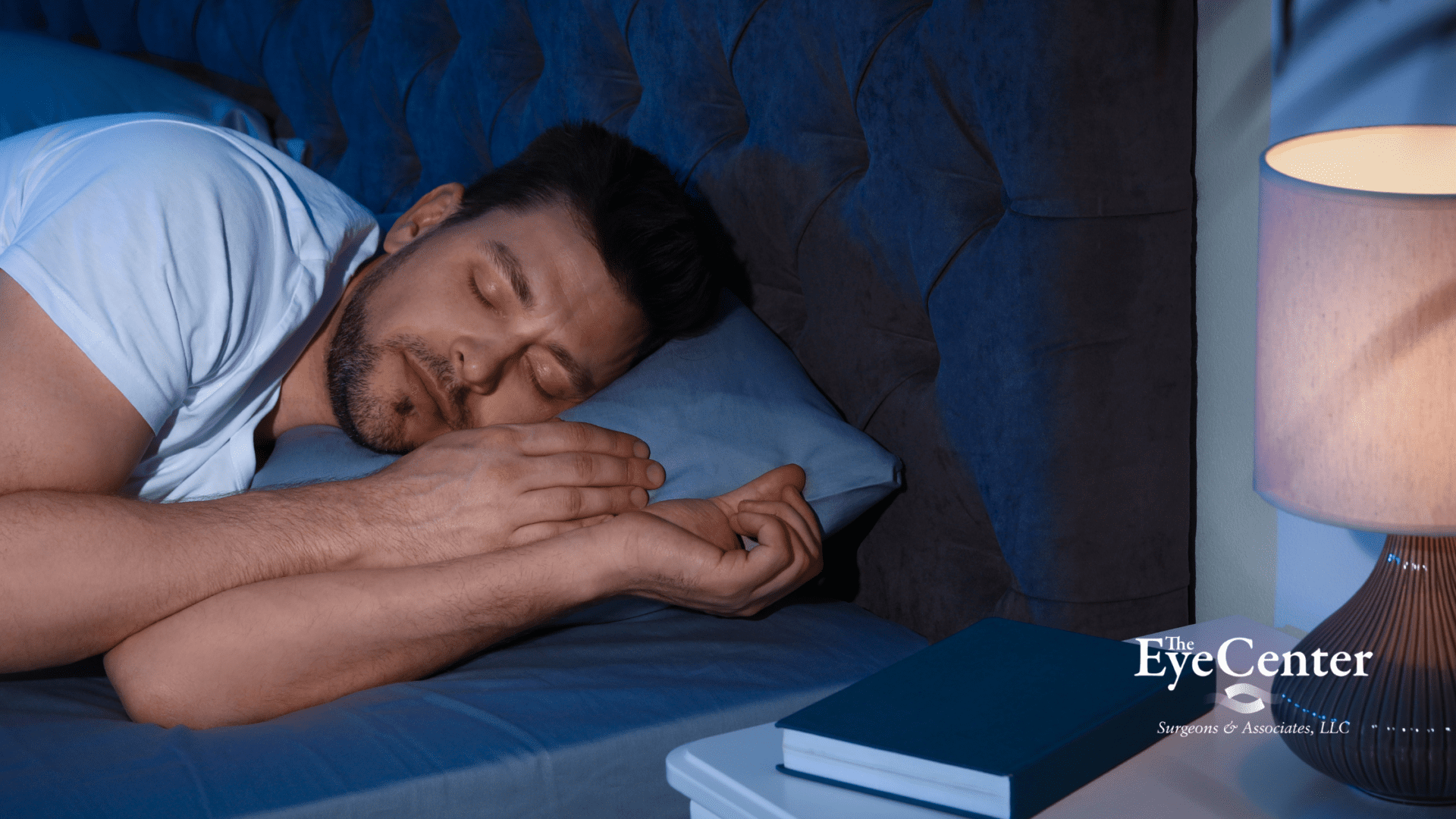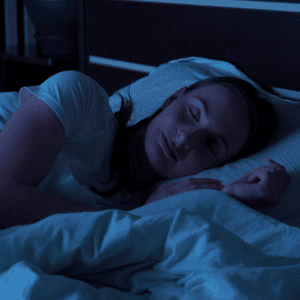The Relationship Between Eyes and Sleep

The human body is a complex, scientific marvel. It is fueled by food, water, and proper exercise. But no matter how well you take care of your body, none of that matters if you do not get enough sleep.
Your eyes play a critical role in regulating your sleep cycle and overall sleep quality. Maintaining a healthy sleep environment, managing exposure to light, and addressing any eye-related issues can mean better sleep quality and improved eye health.
How Does Sleep Quality Impact Overall Health?
Short-term symptoms of sleep deprivation include drowsiness, eye twitches, difficulty staying alert, and a foul mood. Long-term effects will manifest as increased blood pressure, memory loss, and difficulty losing weight. Sufficient sleep supports emotional well-being by helping reduce the risk of anxiety and depression.
Five Physical Effects of Poor Sleep on Your Eyes
If you are experiencing restless nights, your eyes will begin to show the following physical signs:
- Eye irritation and allergies – Lack of sleep can weaken the immune system. A weakened immune system makes the eyes more prone to minor irritations like itchiness, redness, and allergies.
- Dark circles and puffiness – Insufficient sleep can cause the blood vessels around the eyes to dilate, which can give the appearance of dark circles and puffiness.
- Dry eyes – While sleeping, your body heals and restores eye moisture levels. Not sleeping disrupts the process, leading to dry eyes, redness, and pain.
- Eye fatigue and strain – Without proper rest, the eyes are overworked, causing blurred vision, headaches, and difficulty focusing.
- Increased risk of eye conditions – Chronic sleep deprivation has been associated with an increased risk of certain eye conditions such as macular degeneration, glaucoma, and dry-eye syndrome.
Simple Ways to Combat Poor Sleep and Vision Issues
Exercise and a healthy diet will always reign supreme. But in addition to exercising regulary and eating well, here are three steps you can take to make sure your eyes and sleep cycle have a good working relationship:
- Hydrate – Your eyes depend on water to remain lubricated.
- Treat any chronic conditions – Chronic sleep conditions not only affect your sleep cycle but eye health. For example, sleep apnea is a condition that interrupts breathing during sleep. Discomfort while sleeping prevents you from getting into deep sleep cycles, which may cause chronic conditions to worsen over time. To curb the effects of these conditions, exercise often, visit your doctor regularly, and follow prescribed treatments.
- Get an eye exam – Surprised? Well, an eye doctor will be able to diagnose, treat, or prevent conditions that cause your vision to deteriorate.
To maintain good eye health, healthy sleep habits must be formed. Aim for 7-9 hours of sleep per night, create a comfortable sleep environment, and manage stress. If you notice persistent eye discomfort or changes in your vision, it’s important to consult an eye care professional for a comprehensive exam and treatment.
If you have additional questions regarding your eye health, please contact The Eye Center, with locations in Huntsville and Madison, at (256) 705-3937 to schedule a comprehensive eye exam.
